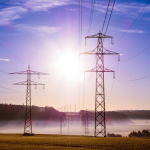REC Limited, a public infrastructure finance company in India’s power sector, announced that its board of directors had approved a proposal to incorporate seven project-specific special purpose vehicles (SPVs) as wholly-owned subsidiaries of REC Transmission Projects Company Limited (RECTPCL) to develop transmission projects.
The RECTPCL is a subsidiary of REC Limited that will be developing the following projects allocated by the Ministry of Power (MoP):
Transmission program for solar energy zone in Gadag (2.5 GW), Karnataka – Part A
Transmission program for solar energy zone in Bidar (2.5 GW), Karnataka
Transmission system strengthening program for the evacuation of power from solar energy zones in Rajasthan (8.1 GW) under phase II – Part A
Transmission system strengthening program for the evacuation of power from solar energy zones in Rajasthan (8.1 GW) under phase II – Part B
Transmission system strengthening program for the evacuation of power from solar energy zones in Rajasthan (8.1 GW) under phase II – Part C
Transmission system for evacuation of power from renewable projects in Osmanabad area (1 GW) in Maharashtra
Transmission system for evacuation of power from renewable projects in Rajgarh (2.5 GW) solar energy zone (SEZ) in Madhya Pradesh
A special purpose vehicle is a separate legal entity created by a company to achieve specific or temporary tasks and objectives while isolating the parent company from the risks involved.
Mercom recently reported that the REC Transmission Projects Company floated a request for proposal (RfP) for transmission service providers to set up seven projects on a build, own, operate, and maintain basis. These transmission projects are for solar projects in Karnataka, Rajasthan, and Maharashtra.
Earlier, Adani Transmission Ltd. (ATL), the transmission business arm of the Adani Group, received two Letters of Intent from REC Transmission Projects Company Limited to develop two transmission projects in the state of Gujarat. The projects were to be established on a build, own, operate, and maintain basis for 35 years.
Lack of transmission infrastructure has been a growing concern for solar and wind companies in the country. In the past, Mercom has written about how, with the expected surge in electricity demand over the coming decade and the rapid installation of solar and wind, India’s transmission and distribution system requires significant expansion.





